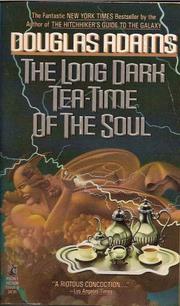In 1940, Germany invaded France and occupied the northern half which included Paris. The southern half was governed under martial law by the Vichy French State who collaborated heavily with the Germans in order to maintain the illusion of independent sovereignty. On May 10, 1941, about 4,000 Jewish men of non-French nationality were arrested by the French police and sent to internment camps. Then, on July 16 and 17, 1942, a massive round up of more than 13,000 men, women, and children took place mostly in and around Paris. The Germans called it Operation Spring Breeze, but the French and Jewish people refer to it as Rafle du Vélodrome d'Hiver (or just Vel' d'Hiv).
The Vélodrome d'Hiver was an indoor cycling arena near the Eiffel Tower. After the arrests were made around dawn, the Jews were bussed from all over the city to the Vel' d'Hiv and confined there for several days in sweltering summer heat under glass skylights without food, water, or sanitation. From there, they were sent to internment camps around Paris, and later on to Auschwitz in Poland to be killed.
The rafle (roundup) was meticulously planned by the German SS, but it was carried out by the French police force with the permission of the Vichy leadership who seem to have considered Jewish deportation a benefit to France even though they claimed to have had no choice but to appease their occupiers in this request. As evidence of French enthusiasm, the French police ordered children as young as two to be arrested with their parents even though children younger than 15 or 16 were not included in the German deportation orders (since they were upholding the ploy that the Jews were needed as workers). Additionally, only foreign born or stateless Jews were required by the Germans, but many of the Vel' d'Hiv Jews were actually French citizens, especially the children who were often even French-born. After the war, the French government refused to take responsibility for their complicity in the Vel' d'Hiv Roundup, claiming that the Vichy State was not the French Republic and therefore the Republic was not to blame, until in 1995 Jaques Chirac formally acknowledged the deportation and apologized for France's involvement.
Tatiana de Rosnay's novel Sarah's Key tells the story of the Vel' d'Hiv in two intertwining narratives: one of a young Jewish girl living through the roundup and its aftermath in 1942 and the other of a middle-aged American journalist living in present-day Paris with her French husband and daughter, researching the event for an article. Julia, the journalist, discovers a very personal connection between herself and Sarah, the girl, which promts her to try to find out whether or not Sarah survived the Holocaust and might still be alive, now an old woman.
I generally shy away from Holocaust literature and films. I've read and seen tons of them now, and visited Jewish museums in Germany, and it's emotionally exhausting to keep recovering that same horrifying ground. When my sister-in-law loaned this book to me, I was intruiged by the plot summary but wary of digging into a book I couldn't finish. Nevertheless, I found this unusual story of a forgotten piece of war history to be really captivating. I ended up doing some additional reading online about the Vel' d'Hiv, the French camps, the Vichy government, and the French Resistance because the topic sparked my interest. My only quibble was that I felt the relationship between Julia and her husband was kind of a distraction and not really satisfactorily resolved in terms of how it related to the rest of the story. There should have been something about how uncovering Sarah's story changed the way she felt about family and relationships or something like that, but it never really surfaced. Otherwise, I felt it was at least something new, a new story well told about an well-covered era.
Ironically, I also watched Inglorious Basterds this weekend! Another French setting for an unusual Holocaust story. Weird. Good movie - the German officer Landau steals the show!
Sunday, March 14, 2010
Subscribe to:
Post Comments (Atom)


No comments:
Post a Comment